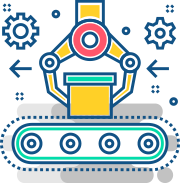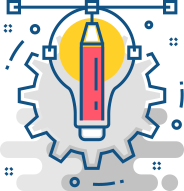School Information
50 Jenckes Hill RdLincoln, RI 02865
Program of Studies
View Program of StudiesWebsite
View WebsiteSchool Contact
Primary Contact
 Program Overview
Program Overview
Center for Advanced Manufacturing (Biotechnology; Electrical & Renewable Energy; Pre-Engineering/Robotics; and Machine Technology
Brief DescriptionThe Machine Technology program prepares students for entry into the growing field of high tech manufacturing, where there is currently a shortage of skilled workers. The standards developed by the National Institute for Metalworking Skills, Inc. (NIMS) guide the training curriculum. Students learn to operate a wide variety of machines and computer software currently used in the dynamic world of manufacturing. Davies students apply and enhance their skills in three well-equipped training labs. One lab includes various types of milling machines, grinders, lathes and heat treating equipment. In the Computer Assisted Manufacturing (CAM) Lab, students learn part design using CAD (computer-aided design) software, then produce the products using CAM software and Fanuc controlled CNC (computer numeric controlled) lathes and milling machines. The third lab includes state-of-the-art quality assurance equipment. Skills students learn include: Safety Blueprint reading Measurement Quality assurance Toolroom management Machine set-up and operation
Year Program Started
1970
Grade level that first course in sequence is offered
10
Pathway
Logistics Inventory Control , Manufacturing Production Process , Maintenance, Installation, and Repair , Manufacturing Production Pathway, Quality Assurance
 Academic Design and Delivery
Academic Design and Delivery
No
Number of courses required to complete or offered in the program:
3
Total credits required to complete the program:
26
Industry-recognized credentials
National Institute for Metalworking Skills (NIMS), National Center for Construction Education & Research (NCCER), International Society of Certified Electronics Technicians (ISCET), Electronics Technicians Association (ETA), A certificate or certification offered by a third party, NIMS; ISCET; NOCTI; NCCER
Program Standards
Yes - RI Department of Education hosts all CTE Industry standards that we are required to meet.
How often program curriculum is reviewed
RI Department of Education hosts all CTE Industry standards that we are required to meet.
Stakeholders participating in program review
Education: This may include a high school diploma or equivalent, postsecondary degree or completion of postsecondary level CTE coursework.
Work Experience: This may include completion of a specified number of hours or years of work or apprenticeship experience in the occupational area.
Certification: This may include possession of an industry-recognized license or certification.
Assessments: This may include the successful completion of testing in CTE subject matter, content area expertise, or other relevant knowledge.
Teacher or CTE Training: This may include completion of professional learning or training required for teachers generally, professional learning or training in the CTE field or in a specific occupational area, mentorship experience, or other pedagogical training.
Opportunities to earn credit articulating to the next level of education
Articulation agreements
 Industry Partnerships
Industry Partnerships
Yes
How are employability skill standards incorporated into the program?
All grade 10-12 students are evaluated bi-weekly using a 21st Century Work-Readiness Rubric that identifies four criteria (Professionalism; Collaboration; Critical Thinking; and Communication Skills. Technical teachers participate in professional development to continue to understand the needs of our industry partners and preparation for today's job market.
Program/business partnerships
Yes - Industry partners participate in work-based learning placement; evaluators and judges for on-site statewide competitions; curriculum writing; and members of our program advisory board meetings.
Community Partners
RI Home Show (prior to COVID); RIMA
Work-based learning opportunities/internships
Cooperative work education, Internships
CTO’s
SkillsUSA

